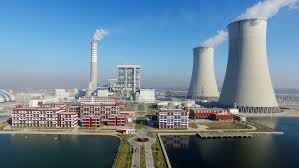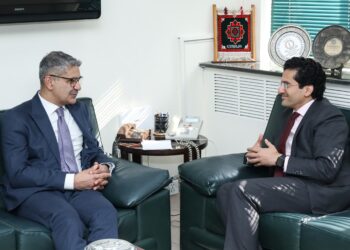ISLAMABAD: The Oil Companies Advisory Council (OCAC) and its member companies have expressed r deep concern and strong protest regarding the imposition of a Petroleum Levy (PL) of Rs. 82,077 per metric ton on Furnace Oil (FO), effective July 1, 2025, through the Finance Act, 2025, seeking SIFC intervention in the matter.
In a letter to National Coordinator SIFC, Chairman Oil Companies Advisory Council, Adil Khattak has stated that this levy comes in addition to Climate Support Levy (CSL) of Rs. 2,665 per metric ton on FO, and poses a serious threat to the overall business environment in the country. While we acknowledge and sincerely appreciate the support extended by the Special Investment Facilitation Council (SIFC) in securing interim relief from the Government of Pakistan-through recovery of inadmissible General Sales Tax GST on petroleum products through the Inland Freight Equalization Margin (IFEM) mechanism-we would like to emphasize that this remains a temporary measure with limited scope. A sustainable solution requires the restoration of the taxable status of currently exempt petroleum products i.e. Motor Spirit (MS), High-Speed Diesel (HSD), Kerosene, and Light Diesel Oil (LDO). SIFC’s continued support is pivotal till the full and permanent resolution of this matter. The abrupt imposition of PL & CSL on FO without prior consultation with the industry signals a total disconnect from the economic and operational challenges currently being faced by the industry. FO is a deregulated product, and its pricing is governed by market forces. It is mainly used for meeting energy needs of our domestic industry.
He said, the imposition of such a substantial fiscal burden will have widespread and adverse financial repercussions across multiple sectors of businesses, threatening their viability and long-term sustainability. In this context, we respectfully submit the following points for your urgent consideration:
The imposition of PL & CSL will increase FO prices by approximately 80%, making its use economically unviable for key industries such as cement, shipping, textiles, glass, tyre manufacturing, large-scale industrial units, foundries, and other sectors relying on boilers and furnaces (commonly referred to as general trade). This drastic price increase will eliminate FO domestic demand and drive a sharp decline in industrial activity, potentially resulting in partial or complete operational shutdowns-especially where no viable fuel alternatives exist.
This measure stands in stark contrast to the Government of Pakistan’s stated commitment to promoting domestic manufacturing. Rather than enhancing revenues, it is likely to significantly reduce or eliminate FO sales within the country, thereby decreasing associated sales tax revenues and undermining industrial competitiveness. Additionally, it would also defeat the objective of collection of envisaged revenue by imposing PL and CSL on FO.
In the absence of domestic demand, local refineries would be forced to export FO at a considerable financial loss. This will further strain the already fragile financial condition of Pakistan’s refining sector and compromise its sustainability.
The Government has recently renegotiated tariffs with FO-based Independent Power Producers (IPPs). Imposing PL and CSL would substantially increase fuel costs, thereby pushing these plants lower on the merit order, rendering them inactive. This would nullify the gains from recent renegotiations while still obligating the Government to make capacity payments-effectively increasing the burden on national finances without any corresponding benefit.
“ we strongly urge SIFC to intervene and recommend the withdrawal of the PL & CSL on FO. This will help restore policy consistency, support critical sectors of the economy, and uphold the principles of fair and sustainable economic development,” he concluded.
NEPRA accepts Sahiwal Power Plant’s explanation, closes blackout inquiry
ISLAMABAD: The National Electric Power Regulatory Authority (NEPRA) has settled Show Cause notice issued to 1320 MW Sahiwal coal-fired power...
Read more














